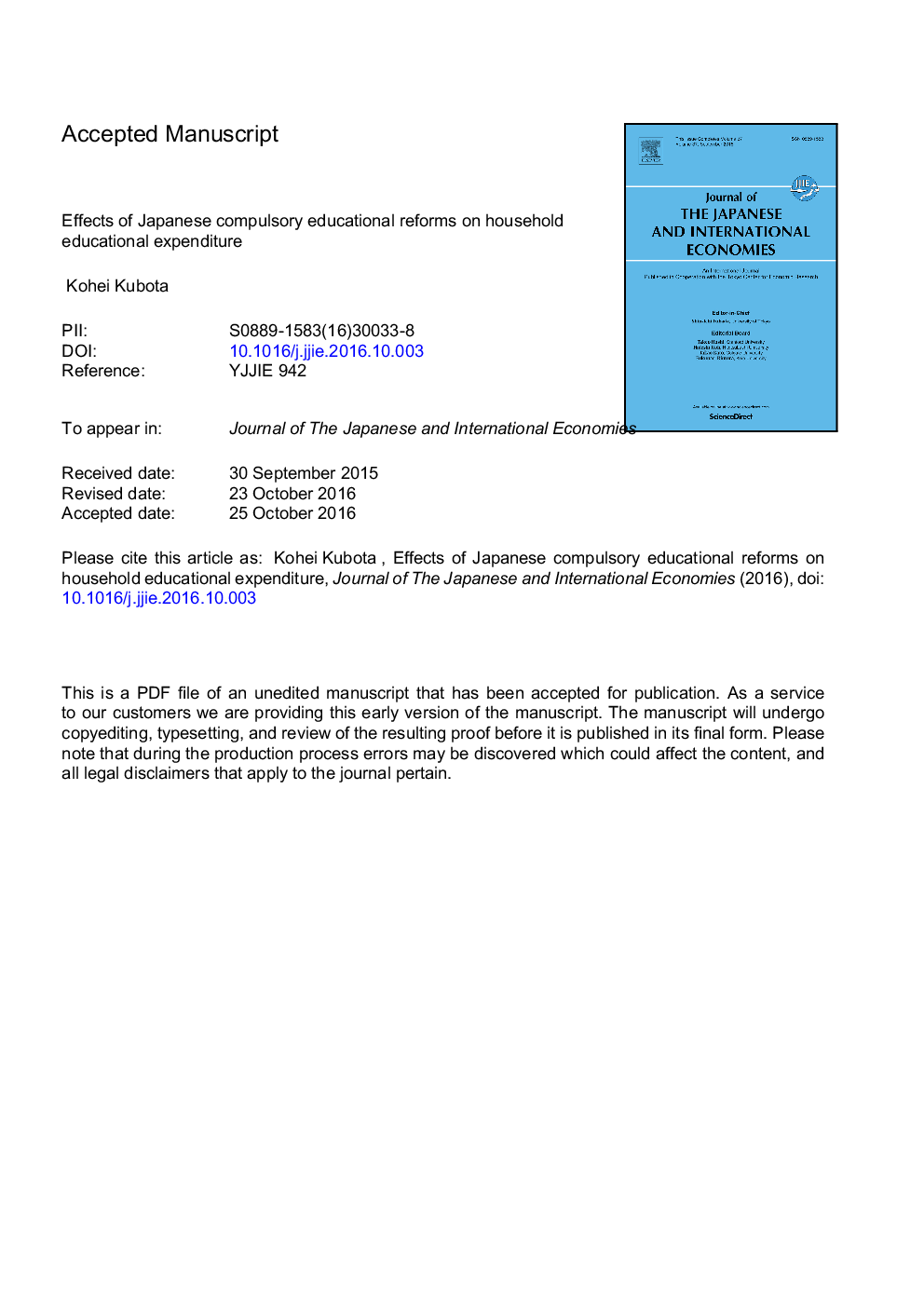| Article ID | Journal | Published Year | Pages | File Type |
|---|---|---|---|---|
| 5101271 | Journal of the Japanese and International Economies | 2016 | 73 Pages |
Abstract
This study investigates the effects of the 2002 Japanese reforms of compulsory education on household expenditure on supplementary schooling and out-of-school activities for junior high school students. These reforms marked a dramatic change in Japan's compulsory education system in two main respects: from April 2002, every Saturday became a public school holiday and instructional time was reduced following the government's revisions of national curriculum guidelines, leaving private schools largely unaffected. Based on aggregate data taken from the Child Study Expenditure Survey, the difference-in-differences estimation-households with children attending public schools as the treatment group and those attending private schools as the control group-reveals that the 2002 educational reforms increased target household expenditure on supplementary education by 13% and spending on outdoor activities/volunteering, arts, sports, and cultural activities by 23%. Disaggregated analysis based on microdata taken from the National Survey of Family Income and Expenditure carried out by the Bureau of Statistics further reveals that the impacts of these educational reforms were larger for higher-income households than for lower-income ones.
Keywords
Related Topics
Social Sciences and Humanities
Economics, Econometrics and Finance
Economics and Econometrics
Authors
Kohei Kubota,
